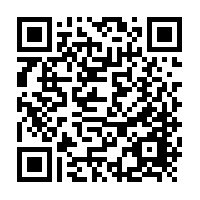Originality and innovation have always been beyond price. Especially among young aspiring entrepreneurs whose mission is to create the next big thing.
However, with all those ideas bouncing around it’s extremely difficult to think of something totally new. All the more so as our brains are wired to recycle the ideas we’ve already heard about!
So how to get better at thinking independently?
Check out: How to Break the Mold and Be an Independent Thinker
Listen
Glossary
- wacky – amusing and very strange
- vague – not clearly stated or expressed
- prompt – to cause (someone) to do something
- viable – capable of being done or used
- misfit – a person who is different from other people and who does not seem to belong in a particular group or situation
- outcome – something that happens as a result of an activity or process
Think about it
Are the statements below true or false?
- It is natural for our brains process the ideas that we’ve hear about previously.
- When presented with the task of drawing an animal from an alien planet, few people make it look like nothing else.
- Solutions to open-ended problems tend to be unimaginative.
- Putting incompatible ideas together always produces unique solutions.
- Edison was the only inventor who made the history.
Practice makes perfect
Replace the words and phrases in bold with the ones from the original text.
- Our brains have a natural tendency to recycle ideas we’ve already heard from others,
- Independent thinking requires you to do it in a completely new way.
- The limitations should force you to consider an unfamiliar scenario, and you should try many of them as you work toward a workable solution.
Fill in the blank spaces with the missing word.
Let’s start ________ an exercise: Take a blank piece of paper and draw _______ animal from an alien planet.
If you’re ________ most people, then what you’ve drawn looks wacky, but vaguely familiar. It’s probably somewhat symmetric, and it likely ________ some combination of arms, legs, ears, eyes, or noses. _______ other words, it looks like a distorted version of animals on Earth.
“Everything you think is influenced ________ years of experience and cultural upbringing,” says Art Markman, ________ cognitive psychologist at University of Texas ________ Austin and author of Smart Thinking (Perigee Trade, 2012). “Your natural tendency is to pull a known solution from your memory.”
Explore it more
(1056)
Podcast: Play in new window | Download





